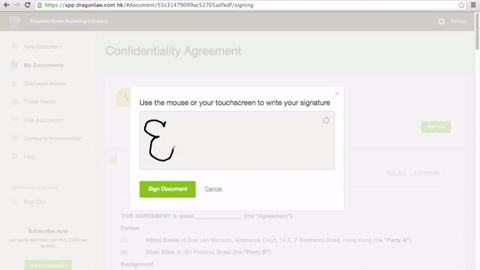Table of Contents
Ranked 6th on the Venture Capital & Private Equity Country Attractiveness Index for 2016 and with rapid growth in the local startup ecosystem, Australia is an increasingly attractive place for entrepreneurship. Australian government also provide different types to grants to uplift business. Here, we give you the lowdown on how to set up your business in Australia.
Registering your business
In order to start your business in Australia, it is necessary to register for an Australian Business Number (ABN), Goods and Services Tax (GST) and other registrations and licenses.
Decide on a business structure
Before registering your business, think about the advantages and disadvantages of each type of business structure and determine which best suits your needs. The business structure will affect your tax obligations. The common types of business structures include the following:
| Business Structure | What is it? | Tax Obligation |
|---|---|---|
| Sole trader | The business and the owner share the same legal personality. Thus, as a sole trader, you are responsible for all business liabilities. | You need to report your business income on your personal income tax return, along with any other income. |
| Partnership | This is a type of structure where two or more people legally share profits, risks and losses according to terms set out in a partnership agreement. | You must lodge a separate partnership income tax return. |
| Company | This is a legal entity separate from its members (shareholders). A director of a company has additional legal and reporting obligations. | You must lodge a separate company income tax return. |
| Trust | This is not technically a business structure, but rather a trust is used to describe the relationship between a business owner and a third party who has legal control and a duty to run that business to benefit someone else. | You must lodge a separate trust income tax return |
Source: business.gov.au
Register your company
If you have decided that you will register your business as a company, you can do so in two ways:
- Contact a private service provider; or
- Lodge a paper form directly with ASIC. To register your company directly with ASIC, complete Form 201 – Application for registration as an Australian company and mail it in.
Once your application has been processed, you will receive an Australian Company Number (ACN), which you can use to apply for an ABN. Your company will be registered and you will receive a certificate of registration.
Apply for the relevant licenses & permits
In order to determine which licenses and permits apply to your business, check the Australian Business Licence and Information Service (ABLIS) online. You would typically need to register for the following:
- Australian Business Number (ABN): The ABN is a unique 11 digit number that identifies your business to the government and community. You may apply for an ABN for free at any time via the Australian Business Register website. If you are registering a company, you need to apply for an Australian Company Number (ACN) before your apply for an ABN.
- Tax File Number (TFN): Most businesses or organisations can apply for a TFN at the same time as their ABN application.
- Goods & Services Tax (GST): You have to register for GST If your business expects to have GST turnover of $75,000AUD or more, or if you provide taxi travel or are a care hire operator. You can register for GST on the ABN application form.
- Pay As You Go (PAYG) withholding: Under the PAYG withholding rules, you have an obligation to collect tax from payments you make to employees and some businesses so they can meet their end-of-year tax liabilities. Check the Australian Taxation Office to find out whether you are subject to withholding obligations. There are several ways to register for PAYG withholding, and you must apply to register by the day you are first required to withhold an amount from a payment.
Register business name
In order to apply for a business name, you must first have an ABN or an ABN application number. Before registering your business name with the Australian Securities & Investments Commission (ASIC), check that your proposed name is available by searching online at ASIC – Online Services and ABN Lookup. In addition, you should also check that your proposed business name does not conflict with someone else’s registered trade mark by checking IP Australia.
After incorporation
Once your company is incorporated, it is time to get your business up and running.
Ensure compliance with local laws
In order to determine which government licenses, permits, approvals, codes of practices, standards and guidelines are applicable to your business, search the Australian Business License and Information Service (ABLIS), which allows you to create and download a personalised report containing a summary of the state or territory requirements relevant to your business. Register for an Australian Business Account so you can save your search results and manage your registrations, licenses and permits.
Determine tax obligations
In order to determine your taxation obligations, use the free tools provided by the Australian Taxation Office (ATO).

Get a lawyer, accountant and small business resources
Seek advice on legal and financial issues, as well as grants available to your small business. Some resources for picking up information relevant to small businesses include the following:
- Treasury Information for small businesses on general legal issues relevant to small businesses;
- Advisor – Search for a low-cost business adviser in your area;
- Grants & Assistance – Find support, funding, assistance packages and loans for your business from all levels of government
For more thorough guidelines on how to set up your business in Australia, download the Starting your Business checklist developed by the Australian government.
Claim your free trial. Start drafting legal documents with Zegal today.
Alex Tanglao
Alex Tanglao is a seasoned professional with expertise in startups, legal technology, and business management. Alex has held leadership roles, including Director of Strategy & Operations at Elevate Digital, where he streamlined operations and managed teams, and Director of Ecommerce at Allies of Skin, driving global growth. Alex served as Marketing Manager at Zegal, driving legaltech and educating businesses on startup legal topics. With a background in content strategy from LawPath, Alex combines a deep understanding of legal services with operational excellence and innovative marketing strategies to help businesses thrive in dynamic, fast-paced environments.






